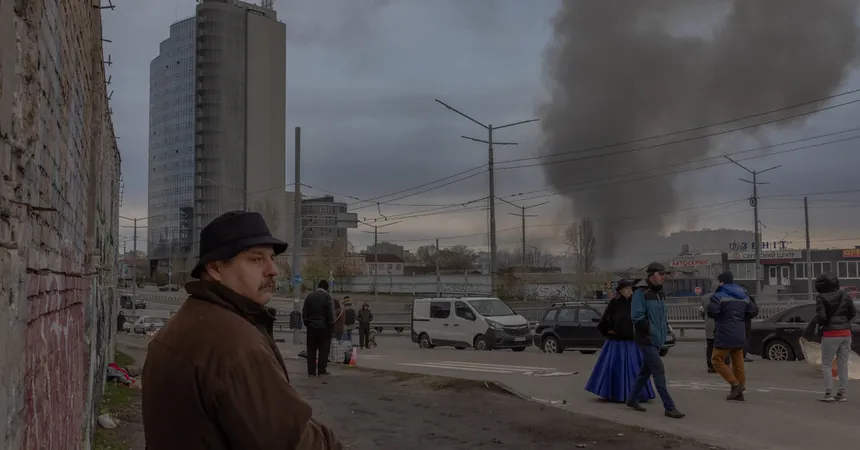
11 Warning Signs You're Facing a 'Depression Attack' – And How to Cope Now!
2025-04-02
Author: Yan
Many of us are all too familiar with anxiety attacks. They often hit unexpectedly, causing rapid heartbeats, sweating, and overwhelming nervousness, usually triggered by stressful situations like job interviews or encounters with an ex. However, the concept of a “depression attack” is less well-known but equally distressing.
What Exactly is a Depression Attack?
A "depression attack" is a colloquial term rather than a formal clinical diagnosis, as explained by Comfort Shields, a clinical psychologist. It refers to a sudden and intense wave of despair or emotional paralysis. While individuals with major depressive disorder (MDD) can experience these episodes, those without a clinical diagnosis can also be affected. Unlike MDD, which can persist for weeks, depression attacks are typically brief, lasting from several minutes to a few days.
Potential Triggers of a Depression Attack
Various factors can instigate a depression attack. These may include:
- Past trauma or its long-term effects on emotional regulation.
- Chronic stress and burnout.
- Neurodivergence, such as ADHD or autism.
- Other mental health conditions (e.g., bipolar disorder, anxiety disorders).
- Social comparison, perfectionism, and feelings of inadequacy.
- Hormonal changes, lack of natural light, or fluctuations in blood sugar levels.
- Experiences of grief or loss.
- Genetic predispositions.
- Sudden life changes or disappointments (e.g., losing a job, breakups).
- Substance misuse.
- Neglecting physical health needs (such as nutrition, sleep, or exercise).
- Other strong emotions like guilt or disappointment.
Moreover, sometimes a depression attack may seem to arise without any identifiable trigger, according to licensed mental health counselor Monica Amorosi.
Recognizing a Depression Attack
The signs of a depression attack can include:
- Overwhelming sadness or emptiness.
- Intrusive, self-critical thoughts.
- An intense urge to isolate oneself.
- Feelings of emotional collapse or exhaustion.
- A heavy sense of hopelessness.
- Low mood and apathy.
- Disconnection from oneself or life.
- Irritability or anger.
- Feeling worthless.
- Losing interest in activities you usually enjoy.
It's essential to note that many individuals—particularly from certain cultural backgrounds—might also experience physical symptoms, including headaches, stomach pain, and sleep disturbances.
Preventing and Managing a Depression Attack
While completely preventing a depression attack may not be feasible, there are strategies to mitigate their occurrence:




 Brasil (PT)
Brasil (PT)
 Canada (EN)
Canada (EN)
 Chile (ES)
Chile (ES)
 Česko (CS)
Česko (CS)
 대한민국 (KO)
대한민국 (KO)
 España (ES)
España (ES)
 France (FR)
France (FR)
 Hong Kong (EN)
Hong Kong (EN)
 Italia (IT)
Italia (IT)
 日本 (JA)
日本 (JA)
 Magyarország (HU)
Magyarország (HU)
 Norge (NO)
Norge (NO)
 Polska (PL)
Polska (PL)
 Schweiz (DE)
Schweiz (DE)
 Singapore (EN)
Singapore (EN)
 Sverige (SV)
Sverige (SV)
 Suomi (FI)
Suomi (FI)
 Türkiye (TR)
Türkiye (TR)
 الإمارات العربية المتحدة (AR)
الإمارات العربية المتحدة (AR)